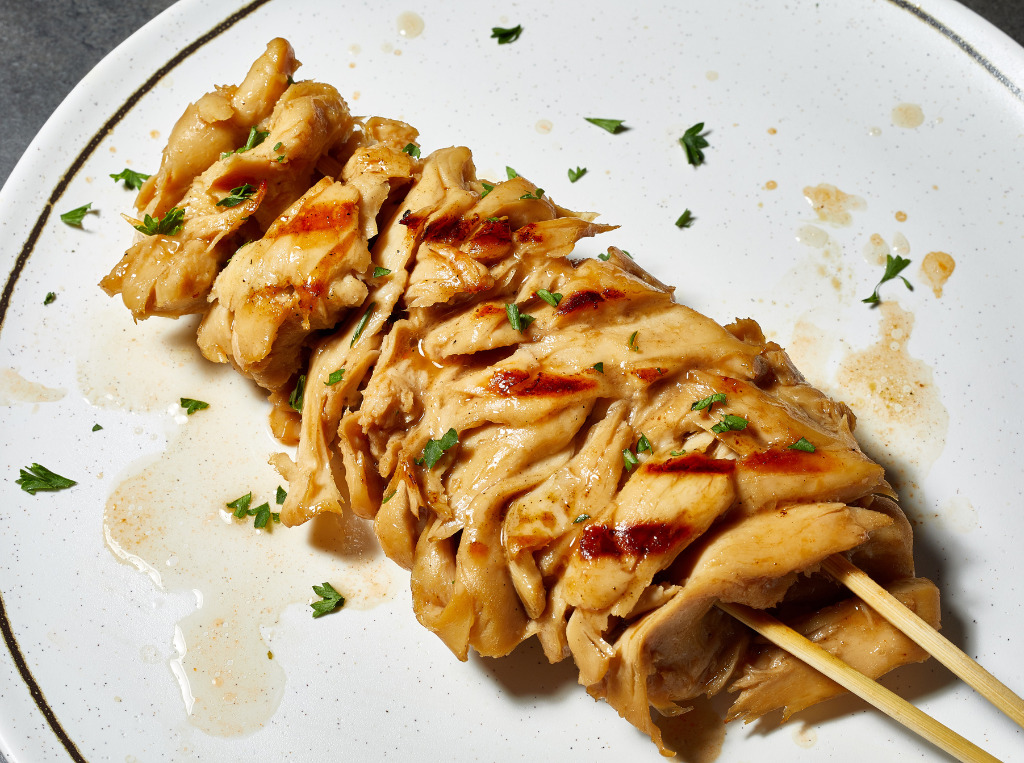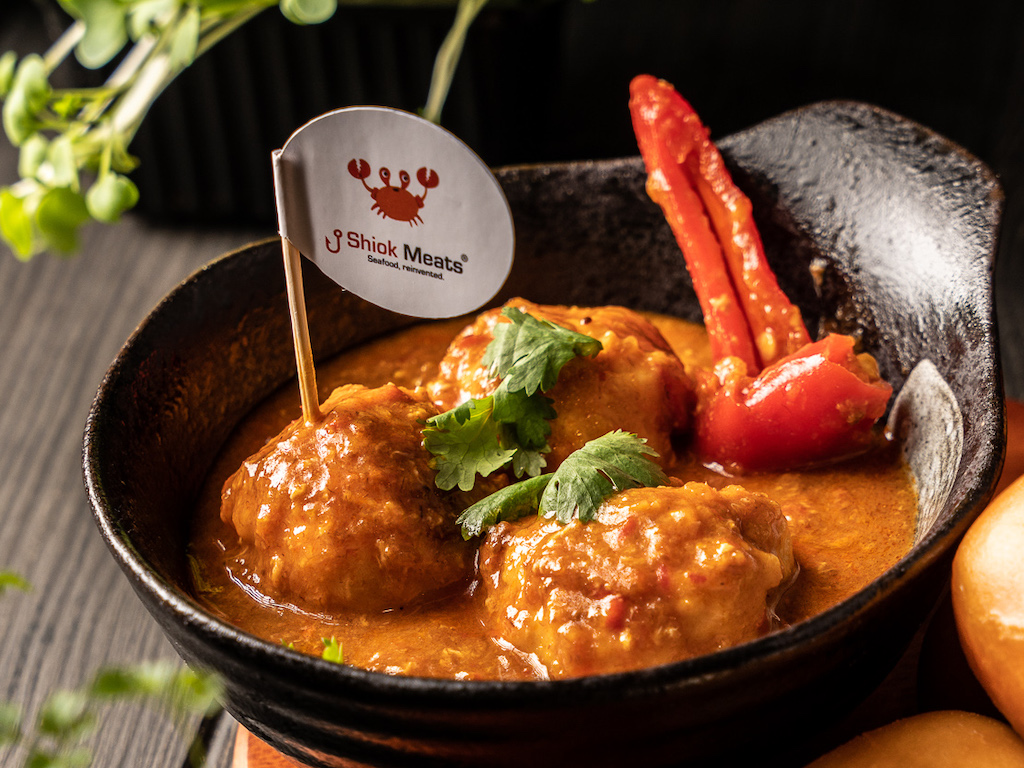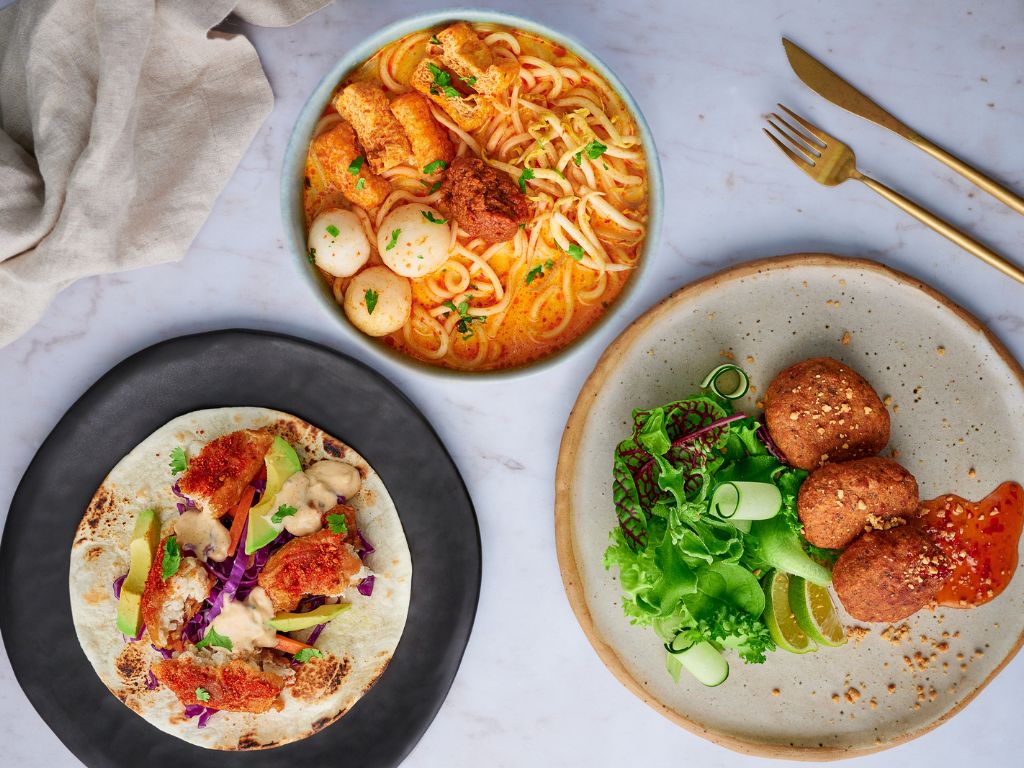New Singapore Food Safety Bill To Offer More Clarity for Novel Foods Like Cultivated Meat
4 Mins Read
Singapore is working on a Food Safety and Security Bill that would offer greater clarity on regulatory frameworks for novel foods like cultivated meat and help prevent foodborne illnesses like the ones suffered from raw seafood, which offers multiple opportunities for cultured meat producers.
At Rethink’s Asia-Pacific Agri-Food Innovation Summit which starts today in Singapore, the nation state’s trade and industry minister Alvin Tam gave a keynote speech to smart protein startups that summed up the city state’s food tech pedigree: “Come to the best place in the world for food innovation.”
Singapore is host to a number of alt-protein startups, and it’s no surprise, given that it was the first (and, for three years, the only) country to approve the sale of cultivated meat when it granted regulatory clearance to Eat Just’s GOOD Meat and its cell-cultured chicken in 2020. The move cemented the island nation’s reputation as a hotbed of food tech innovation with a highly supportive government.
And a year later, there was another world first with Singapore’s granting of a food processing license to Esco Aster, a contract development and manufacturing organisation, for the production of cultured meat.
“Singapore has long been a leader in innovation of all kinds, from information technology to biologics to now leading the world in building a healthier, safer food system,” Eat Just CEO Josh Tetrick said at the time. “I’m sure that our regulatory approval for cultured meat will be the first of many in Singapore and in countries around the globe.”
Greater clarity on cultured meat regulation

Providing further clarity on regulatory frameworks for other companies is part of Singapore’s proposed Food Safety and Security Bill. It will combine food-related provisions from across eight existing Acts – like the Wholesome Meat and Fish Act and the Sale of Food Act – into a single Act.
According to the Straits Times, the bill was first mentioned in 2021, with the then sustainability and environment minister Desmond Tan saying it would be tabled later that year. Now, while there is progress on its status, Tan’s successor Grace Fu added that she doesn’t know when the bill would be tabled.
Speaking at the relocation of the Singapore Food Agency’s National Centre for Food Science (which introduced the regulatory framework for risk assessments of novel food), Fu said: “Innovations in food science are introducing novel foods, offering new opportunities to feed the world. Ensuring that such novel food is safe is critical to protect public health.”
She added: “The Bill will provide greater legal clarity on the regulatory framework for new food innovations, such as novel food and gene-edited crops. We will also – in consultation with the industry – look into enhancing the requirements on food safety systems and processes.”
Fu explained that the SFA is already in talks with industry stakeholders to discuss “how we can all work together to collectively ensure a resilient supply of safe food for Singapore”. “I look forward to hearing from and co-creating with our industry and community partners, to shape our new food legislation,” she said.
Food safety and the cultivated opportunity

The new bill will look to boost the country’s food security too. One way it plans to do so is by bringing over existing powers for the Rice Stockpiles Scheme, which says rice importers must keep a stockpile of the grain in government-designated warehouses to ensure an adequate supply. It goes hand-in-hand with Singapore’s 30 by 30 initiative, which aims to improve food security by producing 30% of all food consumed in the nation by 2030, thus limiting its reliance on imports.
The new National Centre for Food Science premises combines the SFA’s two food safety and science labs, as well as “streamlines operations, improves accessibility for inspectors to submit samples for testing and provides greater accessibility for external collaborations and industry partnerships”, the regulator said.
One of the key goals of the centre – which will serve as a WHO Collaborating Centre for Food Contamination Monitoring – is to prevent and contain the spread of foodborne illnesses. Fu cited a recent food poisoning outbreak, where NCFS used whole genome sequencing to reveal how the same bacteria detected in the sick was also found in raw seafood.
Moreover, the centre’s radioactivity department has been doubling down on its testing of seafood imported from Japan to look for traces of radioactive contamination, as Japan has begun releasing wastewater from the now-shut Fukushima Daiichi nuclear plant.
These foodborne illnesses combined with Singapore’s regulatory framework can be a great opportunity for cultivated meat and seafood companies to capitalise. Some of the leaders in this space include Shiok Meats, Umami Bioworks and Meatiply. Meanwhile, Dutch cultured pork producer Meatable is eyeing regulatory clearance and a 2024 launch in Singapore.




